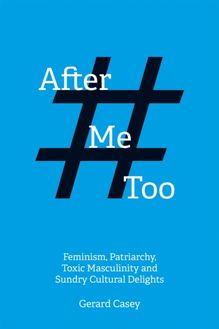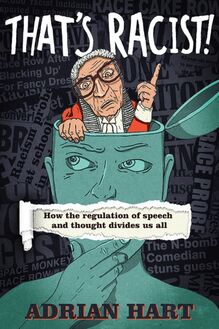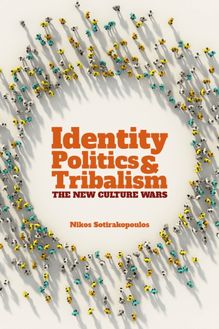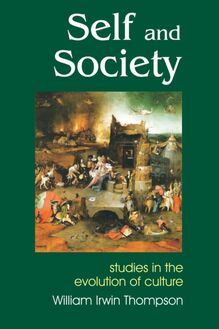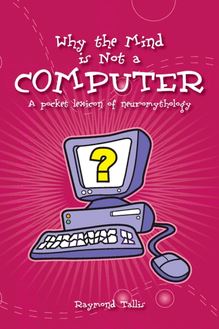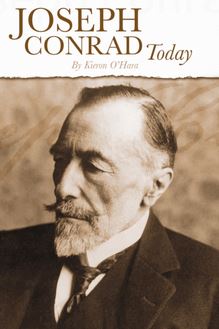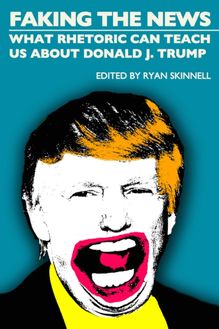Get Over Yourself , livre ebook
66
pages
English
Ebooks
2017
Vous pourrez modifier la taille du texte de cet ouvrage
Obtenez un accès à la bibliothèque pour le consulter en ligne En savoir plus
Découvre YouScribe en t'inscrivant gratuitement
Découvre YouScribe en t'inscrivant gratuitement
66
pages
English
Ebooks
2017
Vous pourrez modifier la taille du texte de cet ouvrage
Obtenez un accès à la bibliothèque pour le consulter en ligne En savoir plus
Publié par
Date de parution
24 octobre 2017
Nombre de lectures
4
EAN13
9781845409548
Langue
English
Publié par
Date de parution
24 octobre 2017
Nombre de lectures
4
EAN13
9781845409548
Langue
English
Get Over Yourself
Nietzsche for our times
Patrick West
SOCIETAS
essays in political
& cultural criticism
imprint-academic.com
2017 digital version converted and published by
Andrews UK Limited
www.andrewsuk.com
Copyright © Patrick West, 2017
The moral rights of the author have been asserted.
No part of this publication may be reproduced in any form without permission, except for the quotation of brief passages in criticism and discussion.
Imprint Academic Ltd., PO Box 200, Exeter EX5 5YX, UK
For my mother and father
Patrick West is a freelance writer based in England. Born and raised in London, he graduated from Manchester University in 1997 with an MA in Cultural History. He has written for The Times , New Statesman , Spectator and The Times Literary Supplement , among others. He is author of Conspicuous Compassion (Civitas, 2004) and The Poverty of Multiculturalism (Civitas, 2005). He is a columnist for Spiked online. He lives in Kent. @patrickxwest
Guide to abbreviations of Nietzsche’s works
The number refers to the book’s section. The exceptions are 1) The Untimely Meditations , which consists of four essays with numbered sections, and 2) Thus Spoke Zarathustra , The Twilight of the Idols and Ecce Homo , which have chapter titles, and are abbreviated in the text appropriately.
BGE - Beyond Good and Evil
BT - The Birth of Tragedy
D - Daybreak
EH - Ecce Homo
GOM - On the Genealogy of Morals
HATH - Human, All Too Human
TAC - The Antichrist
TCOW - The Case of Wagner
TJS - The Joyous Science
TOTI - The Twilight of the Idols
TSZ - Thus Spoke Zarathustra
UM - Untimely Meditations
WTP - The Will to Power
Prologue
There have been thousands of books which profess to explain what Friedrich Nietzsche said and meant. There has been no shortage of authors telling us what they think of the German philosopher. Yet Get Over Yourself puts matters the other way round. Rather than simply explaining his thoughts, it instead asks: what would Nietzsche make of us? What would he think of our 21st-century, digital era?
Get Over Yourself takes Nietzsche’s philosophy to understand our society, and takes our society to explain his philosophy. In our age of identity politics, therapy culture, safe spaces, religious fundamentalism, virtue signalling, Twitterstorms, public emoting, dumbing down, digital addiction and the politics of envy, this book introduces Nietzsche’s philosophy by putting the man in our shoes.
It concludes how Nietzsche’s philosophy can make our world a better place - and we happier people.
Introduction: Get over yourself
In Monty Python’s famous “philosophy football” sketch between the Germans and the Greeks, Friedrich Nietzsche is booked for arguing with the referee Confucious, accusing him of having no free will. “This is Nietzsche’s third booking in four games”, announces the commentator. This sketch sums up Nietzsche’s spirit neatly. It encapsulates the outlook of a philosopher who professed radical individual liberty, who urged us to defy all authority and to question everyone and everything. Nietzsche railed against servitude and the values of the herd, against all received wisdom. Were he a footballer, he wouldn’t merely want to score a goal, or strive to win, or defeat the opposing team. He would question the rules and very authority of the game itself.
Nietzsche’s writings live on through his most famous pronouncements. Consciously or not, we all know them. “God is dead”, he declared. “Live dangerously!”, he exclaimed. He invented the word “Superman”. “What does not kill me makes me stronger” is another of his. “In individuals, insanity is rare; but in groups, parties, nations and epochs, it is the rule.” Elsewhere: “Morality is the herd-instinct in the individual.” These exhortations embody his central message: that life is tough, and we should accept and embrace this reality - and then overcome it. We should take charge of our destinies, be courageous, self-governing “supermen”, fearless in the face of group-think, the mentality of the herd and ideologies that stop us thinking for ourselves and truly becoming ourselves.
Today we are surrounded by Nietzschean slogans, in society and popular culture, words that echo his creed of self-empowerment and self-overcoming. “Beyond” goes the name of a David Beckham after-shave. “Break Your Limits” reads the slogan for Enertor insoles. “Go Further” pronounce adverts for Ford. On the side of cans of the energy drink Relentless there runs the communication: “The journey towards artistry and committing everything for your moment is an accolade in itself. Greatness or glory doesn’t come by accident, it is earned.” The fizzy drink’s spiel concludes with the entreaty: “Be unwavering in your personal pursuit of greatness.”
Nietzsche’s anti-authoritarianism continues to be enlisted by angry teenagers seeking a figurehead in their struggle against parental and religious authority. He appeals to the eternal adolescent spirit of irreverence, gloom and thrill-seeking. In 2012 the heavy metal giants Black Sabbath released a single called God Is Dead? , adorned with a picture of Nietzsche on the sleeve, while “Beyond Good & Evil” is also the title of a popular action-adventure video game. We even hear echoes of Nietzsche in Harry Potter. “Lord Voldemort showed me how wrong I was”, says the character Quirrell in Harry Potter and the Philosopher’s Stone (1997), “There is no good and evil, there is only power, and those too weak to seek it” (Rowling, 1997, p. 211).
Nietzsche’s thinking about the importance of struggle and mastery is much in vogue. His maxim “what doesn’t kill you makes you stronger” is a favourite in boardrooms and self-help books. His philosophy of acceptance, daily battles and becoming a better version of oneself prevails and in drug and alcohol recovery programmes. He has become an unlikely inspiration for the self-help industry. One of the most influential books of our era is Susan Jeffreys’ Feel the Fear And Do It Anyway , a title that is pure Nietzsche. As a consequence of its success, people now enthuse about the “gift of failure” and the idea that “failure is a conduit to fearlessness”. The Stress Test: How pressure can make you stronger (2016) by Ian Robertson is openly indebted to Nietzsche’s beliefs that only by accepting hardship, and by overcoming failure, can we triumph in life.
Friedrich Nietzsche has had universal appeal since his death in 1900. He inspired some of the greatest artists of the 20th century. Freud, Camus, D.H. Lawrence, George Bernard Shaw, W.B. Yeats and Thomas Mann are among the writers who openly owe a debt to him, as are the philosophers Martin Heidegger, Carl Jung, Michel Foucault and Jacques Derrida. His influence in universities and schools and beyond has been formidable. Generations of today’s teachers, policy makers and journalists have been taught first-, second- and third-hand Nietzsche’s philosophy that “there is no truth, only interpretation”.
He is a thinker for all people. Progressives and those on the Left venerate him for his invectives against capitalism, the nation state and bourgeois civilisation. Conservatives and Right-wingers are drawn to his muscular individualism, shameless elitism and denunciation of egalitarianism. He has been claimed by anarchists, feminists, atheists, libertarians, conservatives, postmodernists, socialists, Thatcherites, egalitarians and queer theorists. There seems to be no political movement, no school of thought, that hasn’t lifted his words at some time. “Tell me what you need, and I’ll supply you with the right Nietzsche quotation”, once quipped the German satirist Kurt Tucholsky (Safranski, 2003, p. 11).
His wide appeal to anyone means, in turn, he has the capacity to annoy everyone. “He gets upon everybody’s nerves, he fits in nowhere”, wrote an early English devotee, Anthony Ludovici, in 1908. “He was, of course, a Conservative, but a severer Conservative than anyone we have known hitherto. He was, besides, a revolutionary, but a more thorough revolutionary than all the wildest revolutionaries put together” (Ludovici, 1908; 1905; 1911; 1927, pp. vii–viii). Nietzsche’s broad appeal owes to the fact that his writings are so literary, unsystematic, scatter-gun and often superficially contradictory. The philosopher Karl Jaspers advised that no one should accept any advice in Nietzsche’s work until finding another passage that contradicted it. Only then could the reader decide what he really meant. No wonder Nietzsche means different things to different people. No wonder also that his writing lends itself so easily to misinterpretation.
Thus, he remains a target of vilification. In the Closing of the American Mind (1987), Allan Bloom complained that Nietzsche was the ultimate source of abject student nihilism, the fount of the corrosive culture of relativism eating away at the values of liberal democracy. “Nobody really believes in anything anymore, and everyone spends his life in frenzied work and frenzied play so as not to face the fact, not to look into the abyss. Nietzsche’s call to revolt against liberal democracy is more powerful and more radical than is Marx’s” (Bloom, 2008, p. 143).
Bloom speaks from the traditional Left, but from the opposite side, in Experiments Against Reality (2000), the thinker Roger Kimball typifies complaints by conservatives. He damns “Nietzschanism for the masses, as squads of cozy nihilists parrot his ideas and attitudes. Nietzsche’s contention that truth is merely ‘a moveable host of metaphors, metonymies, and anthropomorphisms,’ for example, has become a veritable mantra in comparative literature departments across


